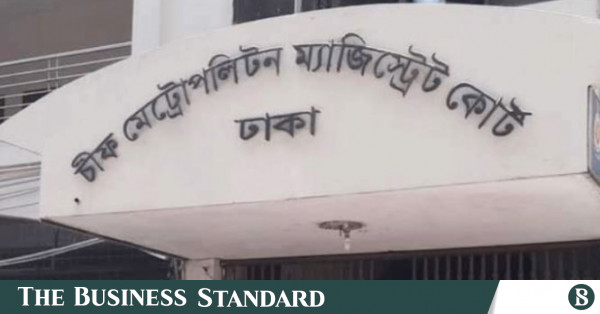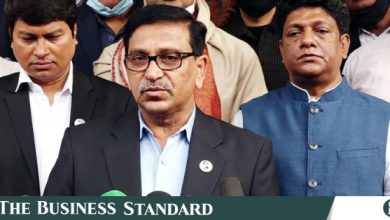How courts, admin, police outside Dhaka coping with power shift


- Court, admin activities slowly resuming after initial disruptions
- Shortage of legal officials impacting court operations
- Junior or assistant officials handling urgent cases in some places
- There are temporary appointments to manage the workload
- Police conducting patrols in small groups or joint patrols
- Civil society, political activists, students supporting administration
After the abrupt departure of Sheikh Hasina on 5 August, the collapse of her government has led to a significant power vacuum, impacting various institutions across Bangladesh.
While efforts are underway by the interim government to restore normalcy, several districts are still struggling to return to their previous levels of activity in the judiciary, local administration, and police forces.
Reports from TBS correspondents highlight the current state of these institutions in several key districts.
Khulna: A struggle to regain momentum
At the District and Sessions Judge Court and the Metropolitan Sessions Judge Court, the absence of public prosecutors (PPs) has been particularly notable in Khulna. With most PPs missing, only assistant PPs are handling cases. Lawyers have observed a reduction in court activity, with fewer accused being brought in from police stations and many witnesses failing to appear.
“While the PPs are still in office, many are not attending due to the possibility of being removed at any moment,” said lawyer Masum Billah.
A visit to the Khulna deputy commissioner’s office on 28 August revealed a low turnout. Officials managed only minor services, with no major licences being issued or renewed.
Following the transfer of Deputy Commissioner Khandaker Yasir Arefin on 20 August, local government deputy director Md Yusuf Ali took over. Yusuf noted that the number of service seekers remains very low, leading to minimal workload, with a similar scarcity observed at Upazila Nirbahi Officer (UNO) offices.
The situation at Khulna police stations reflects ongoing concerns. Patrols are conducted in small groups for safety reasons, and recent changes forced Khulna Metropolitan Police (KMP) Commissioner Md Mozammel Haque and Additional Police Commissioner Sarder Rakibul Islam into compulsory retirement.
Commissioner Mozammel left Khulna the same night, causing notable stress among senior KMP officials. Despite these changes, KMP Deputy Commissioner Mohammad Tazul Islam assured that police operations continue as usual and the adjustments in senior positions have not impacted the functioning of the police stations.
Bogura: Judicial and administrative disruptions
At the start of Awami League rule, 190 legal officers, including PPs and government pleaders (GPs), were appointed across 42 courts in Bogura. However, around 20 of these officers have passed away, and no replacements have been appointed.
Currently, the court operates with only one PP, one GP, and three Special PPs. Notably, two of these Special PPs, responsible for the Women and Child Tribunal Courts 1 and 2, have been named in murder cases following the government’s fall. Consequently, junior legal officers are handling urgent cases.
“A lot of our colleagues are living in fear of lawsuits and attacks. We’re seeking relief from this situation,” said a legal officer.
Mozammel Haque, general secretary of the Bogura Nationalist Lawyers Forum, expressed concern about the slow judicial process. “Many people are coming to court to file cases but are leaving without receiving services. The work and environment in the court have slowed down significantly over the past month. A swift decision regarding the appointment of government legal officers is crucial,” he urged.
Several lawyers reported stagnation in court activities due to the absence of PPs and GPs, as well as issues with the District and Sessions Judge and the Chief Judicial Magistrate. Protests demanding the removal of these officials have further disrupted proceedings.
Despite these challenges, Upazila Parishad administrators in Bogura reported smoother operations with support from civil society, political activists, and students. Bogura Sadar Upazila Parishad administrator Firoza Parvin said, “We’ve worked with many upazila chairmen before, and we’re continuing to do so now. The significant pressure comes from managing committees of many educational institutions.”
UNO Rumana Afroze added, “Carrying out duties as the Upazila Parishad administrator has been manageable as we were already familiar with these responsibilities. However, addressing law and order issues needs more attention.”
Rajshahi: Political changes and judicial stability
In Rajshahi, BNP-aligned lawyers have allegedly taken control of the Rajshahi Bar Association following the power shift. They claimed victory in the previous election but had not assumed responsibilities until now.
Advocate Parvez Toufik Zahedi, former general secretary of the Rajshahi Bar Association, said, “The Awami-aligned lawyers did not allow the election results to be announced. After 5 August, the results were finally declared, and we are now managing the association’s activities.”
Despite these political changes, there have been no immediate alterations in the positions of judges, PPs, or GPs at the Rajshahi courts. Zahedi suggested that replacing all officials at once would disrupt court operations, advocating for a phased appointment process.
A Rajshahi court judge confirmed that operations are running normally, with no transfers yet, though the process is underway. Advocate Entajul Haque Babu, a PP at the Speedy Trial Tribunal Court, reported delays in the transport of accused individuals due to a shortage of police, affecting the judicial process.
Zahedi noted increased court activity over the past week. Despite the transfer of district Police Superintendent Saifur Rahman, he continues to oversee operations until a replacement is appointed.
Rajshahi District’s Additional Superintendent of Police Rafiqul Islam, assured that operations are running smoothly, though traffic and patrol activities, particularly at night, have not been reinforced.
Rajshahi Metropolitan Police Commissioner Biplob Bijoy Talukder has gone on station leave due to his transfer, with the additional police commissioner (administration) stepping in as acting commissioner.
Additional Deputy Commissioner and Rajshahi Metropolitan Police spokesperson Jamirul Islam confirmed that police stations are active, conducting joint patrols with the Army and Border Guard Bangladesh. Rajshahi Deputy Commissioner Shamim Ahmed reported that all UNOs are fulfilling their duties, and activities are proceeding normally.
Sylhet: Gradual return to normalcy
Court activities are gradually returning to normal in Sylhet after initial unrest following the government’s fall. Political cases have surged, with around three to four new cases being filed daily related to the events of 5 August. The enthusiasm of BNP and Jamaat-affiliated lawyers has notably increased, while Awami League-affiliated lawyers have become less engaged.
Lawyers from the Sylhet District and Sessions Judge Court reported that court activities were halted after 5 August due to security issues caused by absent police, which also prevented the transport of prisoners to court. Activities began to normalise around 15 August, with at least 20 new cases filed by 19 August, involving thousands of accused, including Sheikh Hasina.
Emran Ahmed Chowdhury, general secretary of Sylhet District BNP, noted increased activity in his chamber post-August 5, with many filing cases against Awami League leaders.
Ashok Purkayashtha, president of the District Lawyers’ Association, said, “In the first few days after 5 August, court proceedings were somewhat disrupted. Now everything has returned to normal.”
Sylhet Metropolitan Police Deputy Commissioner BM Ashraf Ullah Taher confirmed that although there were initial issues, the police are now working as before to ensure court security and prisoner transport.
Cumilla and Naogaon: Resuming functions
In Cumilla, the district and upazila administration, which had come to a standstill following the government’s fall, is gradually resuming its functions.
The sudden change in government caused widespread panic among local officials, many of whom had strong ties with the Awami League. The deputy commissioner’s office was locked for nearly a week, and several officials allegedly sought refuge with the military. During this period, a transfer order for the deputy commissioner was also issued.
As the interim government took charge, officials began to return to their duties, though initial activity levels remained low. The administration faced additional pressure with vacant positions for district and upazila council chairpersons and municipal mayors, leading to the appointment of temporary administrators.
Severe flooding further complicated the situation, rendering many administrative functions inactive. Activity began to pick up only after a visit from the Home Advisor on August 26.
Pankaj Barua, additional deputy commissioner (general) of Cumilla, said, “We are accustomed to taking on additional responsibilities. Magistrates are trained to handle various situations. The activities of the Cumilla district and upazila administration are proceeding at a normal pace.”
In Naogaon, the legal and administrative systems are beginning to stabilise following the political disruption.
Advocate Abdur Razzak, former general secretary of the Naogaon District Lawyers’ Association, highlighted that during the Awami League government, around 52-53 positions were filled in the Naogaon District and Sessions Judge Court.
With recent political changes, the GP has gone into hiding, but other officials continue to manage PP’s cases. Razzak anticipates new appointments within the next week to address remaining judicial issues.
Popi Khatun, who serves as both the UNO and Upazila Parishad Administrator for Patnitala upazila, reported a halt in tasks related to government allocations previously managed by the upazila chairman. Despite this, other official duties are proceeding as usual, and service recipients continue to receive the necessary assistance.
TBS correspondents Debasish Debu (Sylhet), Tayubur Rahman Sohel (Cumilla), Khorshed Alam (Bogura), Awal Sheikh (Khulna), and Bulbul Habib (Rajshahi) contributed to this report.




